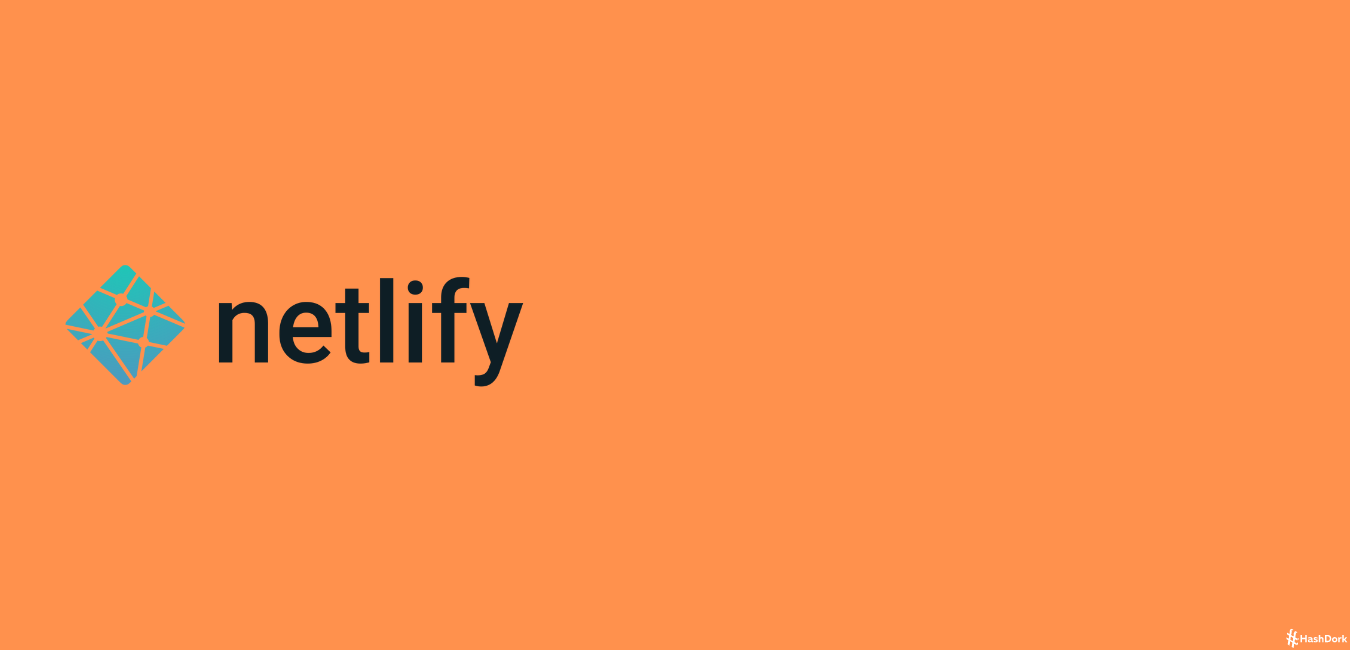Thanks to its amazing features like continuous deployment, rapid rollbacks, and straightforward DNS control, Netlify is a lifesaver for online project management.
Don’t believe all I say, though. You could be puzzling with the motivation for changing something that is so beneficial. Regardless, some developers consider Netlify to be a tad on the expensive side, especially when it comes to bandwidth and storage for their larger projects.
Some individuals could choose to avoid the use of a third-party platform in favor of having more control over their hosting environment.
Depending on your unique circumstances, the criteria for choosing alternatives might change. Think about things like cost, usability, customization possibilities, and tool integrations. Decide on a tool that meets your specific tastes and needs, whether you want an open-source solution or a for-profit platform.
We’ll take a thorough look at the top Netlify alternatives in this post so you can choose one for your own application.
1. Digital Ocean
In need of a cloud computing platform that can accommodate all of your website and app hosting needs? There is just one choice: DigitalOcean.
For programmers of all skill levels, this strong platform is a wonderful choice thanks to a number of features. DigitalOcean offers straightforward APIs, a user-friendly administration interface, and flexible infrastructure options that make administering your website or application simple.
One of the best aspects of DigitalOcean is its support for a wide range of programming languages, including popular ones like Python, Ruby, and Node.js. This shows that DigitalOcean can assist you no matter what language you choose to use.

Managed databases, Kubernetes clusters, and virtual private servers (VPS) are just a few of the hosting options provided by DigitalOcean. To guarantee that your website or application is always safe and current, it also offers strong security, backup, and monitoring features.
For bigger projects that need greater scalability, DigitalOcean is a great alternative because it provides more flexibility in terms of infrastructure options when compared to Netlify. But it might not provide as much automation and deployment functionality as Netlify, which is made especially for static websites.
Pricing
It is free to use It offers a wide range of pricing details which starts from $4/month.

2. Github Pages
Ah, GitHub Pages are definitely our top choice on the list!
You can present your static websites for free using this wonderful hosting option that GitHub has provided for us. You heard me properly; you got it. This static site hosting service downloads HTML, CSS, and JavaScript files straight from a GitHub repository, execute a build process on demand, and publishes a website as a result.
The nicest aspect of GitHub Pages is the option to use either your own custom domain name or the GitHub.io domain, which gives your website’s identity a distinctive touch. Did I also mention that it can be accessed by anybody with a GitHub account?
The greatest way to showcase your work online, regardless of expertise level or whether you’re a seasoned developer, tech-savvy student, or aspiring business owner, is by using GitHub Pages.

It’s perfect for hosting a personal blog, a portfolio website, or even a small business website.
Additionally, you have access to customization choices including unique domain names, Jekyll compatibility, and HTTPS encryption with GitHub Pages. So don’t wait any longer! Now is the moment to let your imagination run wild and begin hosting your website on GitHub Pages.
Although it’s difficult to claim that GitHub Pages is “better” than Netlify, it undoubtedly offers some distinctive advantages. Due to its unrestricted storage and bandwidth, GitHub Pages is a terrific choice for individuals and small companies. It’s also quite user-friendly and simple to use if you’re already familiar with GitHub’s version control system.
Pricing
You can use it for free and premium pricing starts from $3.67 per user/month (billed yearly).

3. GitLab Pages
You’ll undoubtedly like GitLab Pages, a fantastic static website hosting solution. You can host static webpages, documents, or any other static material straight from your GitLab repository using the open-source framework known as GitLab Pages.
It’s ideal for anybody searching for a straightforward and dependable option to host their websites, whether they are developers, students, or company owners. Anyone with a GitLab account can utilize GitLab Pages, and you can make numerous websites per project, each with a unique custom domain.

A variety of customization options are available with GitLab Pages, including support for Jekyll, Hugo, and other static site generators in addition to custom domains, HTTPS encryption, and these features. GitLab Pages also give you the option to design a custom CI/CD pipeline, making it easier to launch your website.
GitLab Pages, therefore, offers all the features you want to get started, whether you want to run a personal blog, a portfolio site, or a central repository for documentation.
Pricing
You can use it for free and premium pricing starts from $24 per user/month (billed yearly).

4. Vercel
If you’re looking for a hosting platform that is high-performance and developer-friendly, Vercel is a fantastic option for you. Online application management and launch are made easier for developers by the cloud-based Vercel platform.
If you’re a single developer, part of a team, or working on a huge commercial project, you can use this incredibly adaptable platform.
Vercel’s blazing-fast build and deployment speeds are among its strongest characteristics since they can greatly increase the effectiveness of your workflow.

Additionally, Vercel offers an incredible array of customization options, including support for several web frameworks like Next.js, React, and Vue.js, SSL encryption, and custom domains. With faster development and deployment times when compared to Netlify, Vercel stands out as being speedier.
Vercel is a superior option for developers that place a premium on usability because it also features a more simplified interface that is simpler to browse.
Additionally, Vercel provides a more scalable hosting option that can manage bigger and trickier projects. With stronger support for Git-based workflows and more thorough connections with third-party tools, Netlify does offer a few benefits over Vercel.
Pricing
You can use it for free and premium pricing starts from $20 per user/month.

5. Heroku
Are you trying to find a web hosting and development environment that supports a variety of coding languages? Then Heroku is your best option!
For programmers of various skill levels searching for a platform that supports a broad variety of coding languages including Ruby, Node.js, Java, Python, Scala, and Clojure, this cloud application platform is the perfect option. Heroku offers programmers fantastic options for delivering and scaling web apps in addition to its support for a number of programming languages.

Heroku enables developers to construct appealing and effective applications by concentrating on giving them the finest features and functionality. Heroku’s additional security capabilities, which enable environment-specific customizations separate from source code to provide improved security and portability, are one of its notable features.
Heroku differs from Netlify in that it offers more customization and flexibility. Your application’s setup and execution are entirely under your control, which enables a more customized hosting environment.
It also provides a variety of deployment alternatives, such as Git-based deployment and container-based deployment, offering developers the freedom to select the deployment approach that best suits the requirements of their projects.
Pricing
It offers a wide range of pricing details and the cost to run your app starts from $5/month.

6. Cloudflare Pages
You need to go no further than Cloudflare Pages if you’re seeking a reliable and dynamic hosting solution! With its fantastic platform, you can host and launch static websites in an easy-to-use manner with unmatched performance and security.
You will be confident that your website is constantly running and operating efficiently thanks to its automated builds and deploys. Cloudflare Pages support a wide range of programming languages, including HTML, CSS, JavaScript, React, and Vue.

Additionally, thanks to its automatic caching and optimization features, your website will load rapidly for users from all over the world. Cloudflare Pages have a number of unquestionable advantages over Netlify.
Cloudflare Pages feature built-in support for Cloudflare’s CDN to ensure that your website is served at lightning-fast rates. Along with protecting your website from online threats, Cloudflare Pages is constructed with high-quality security features including SSL encryption, DDoS mitigation, and firewall rules.
Pricing
You can use it for free and premium pricing starts from $25 /month.

7. Firebase
The cloud-based Firebase platform, which offers a comprehensive variety of backend services, makes it easy and quick to create and deploy mobile and web apps.
This feature-rich platform is an adaptable choice for developers of all skill levels since it supports a wide range of programming languages, including JavaScript, TypeScript, Swift, Kotlin, and many others.
A handful of the features that Firebase provides to simplify development and deployment include real-time databases, user authentication, cloud storage, and hosting services.
Firebase’s seamless connection with the Google Cloud Platform is one of its strongest advantages since it makes it simple to use other Google products and services to create robust, scalable apps.

Developers can concentrate on creating excellent apps without worrying about the backend infrastructure thanks to Firebase’s easy-to-use SDKs for web, Android, and iOS development. Firebase has a couple of distinct benefits over Netlify.
You can simply measure user activity and interaction throughout your whole application thanks to Firebase’s built-in support for Google Analytics and other Google services, for starters.
Additionally, Firebase comes with strong security tools like SSL encryption and Firebase Authentication to make sure your application is always safe from dangers online.
Pricing
Firebase is free, you must pay for the resources; as a result, you gradually use more resources and incur more costs.

8. Render
You can deploy and maintain your apps effectively using the cloud platform Render. No matter if they work for small businesses or large corporations, developers should use this platform.
The flexibility to deploy apps utilizing a multitude of platforms, including Docker, GitHub, and GitLab, is one of Render’s strongest suits. Because of this, utilizing Render is straightforward to use regardless of the development approach you choose.
Render supports a large number of programming languages, including Node.js, Python, Ruby, and others.

Your apps will always be safe and functioning because of its automatic SSL certificates, load balancing, and scalability features.
Render has several distinct advantages over Netlify, including more adaptable deployment choices like Docker and a potent online dashboard that makes it simple to manage your apps.
Furthermore, Render’s price structure is clear and predictable and doesn’t include any extra costs. This makes it simple to budget for your infrastructure and hosting expenditures, regardless of the size of your company.
Pricing
You can use it for free and premium pricing starts from $25 per user /month.

9. StaticDeploy
Look no further than StaticDeploy if you’re looking for a flexible and user-friendly platform to deploy your static websites and apps. This open-source solution provides an excellent selection of features that are suitable for programmers of all experience levels, from beginners to seasoned experts.
For both small and big projects, StaticDeploy makes use of contemporary web technologies to provide quick, safe, and scalable deployment.
Support for numerous programming languages, including JavaScript, HTML, and CSS, as well as build technologies like Gulp, Grunt, and Webpack, is one of StaticDeploy’s standout characteristics.

You can quickly deploy your website or application to a number of hosting companies with StaticDeploy, including well-liked choices like AWS and Google Cloud. Version control capabilities are another strength of StaticDeploy, making it simple to revert to earlier versions of your website or application as needed.
Additionally, the built-in caching feature of StaticDeploy contributes to quicker, more responsive loading times. StaticDeploy supports a greater variety of hosting providers than Netlify, which gives it more freedom and flexibility when it comes to hosting alternatives.
It’s a terrific choice for developers who want to personalize their deployment process because it supports build tools. Additionally, StaticDeploy promotes community contributions and continuous enhancements to its features and capabilities as an open-source platform.
Pricing
It’s free to use for everyone.
10. Back4app
Back4App is a superior open-source backend as a service (BaaS) platform for the cloud that gives developers the adaptability and scalability they need to build and maintain serverless apps.
For online and mobile app developers that want to concentrate on creating their applications without worrying about server maintenance, security, or scalability, it is the perfect answer.
With the aid of Back4App, you can quickly design and release your backend apps in a variety of programming languages, such as JavaScript, Python, and Swift.

You can easily manage your data and APIs using its user-friendly interface. Back4App is renowned for having strong privacy and security features. It offers GDPR compliance, two-factor authentication, automated backups, monitoring, and alerting features in addition to SSL encryption.
You can be guaranteed that your application is always up and running and that any problems can be quickly resolved using Back4App. In contrast to Netlify, which is a platform for deploying static webpages, Back4App is more concentrated on developing backend apps.
Back4App gives additional flexibility in terms of hosting options and more complex capabilities including real-time data syncing, push alerts, and cloud functionalities. For static websites, Netlify provides greater deployment and automation tools.
Pricing
It offers two sets of pricing, backend as a service which starts from $25/month.

Second, container as a service which you can use for free and premium pricing starts from $5/month.

Conclusion
In conclusion. we have looked into a number of technologies and platforms that provide methods for delivering websites and apps.
We’ve seen the characteristics, and advantages, of each platform, including Render, StaticDeploy, DigitalOcean, Back4App, and many others, and contrasted them with Netlify, a well-liked static website deployment platform.
Render is an all-in-one platform that offers straightforward and understandable solutions for developers of all experience levels. For hosting static webpages and apps, StaticDeploy is an open-source platform that provides flexibility and customization possibilities.
Back4App is a BaaS platform that is specially made for creating and administering backend apps, whereas DigitalOcean is a cloud-based platform that offers scalability and affordability for bigger projects.
In the end, your particular needs and tastes will determine which option is best for you. For you to choose the appropriate platform for your requirements, we advise evaluating your project requirements, budget, and development capabilities.







Leave a Reply